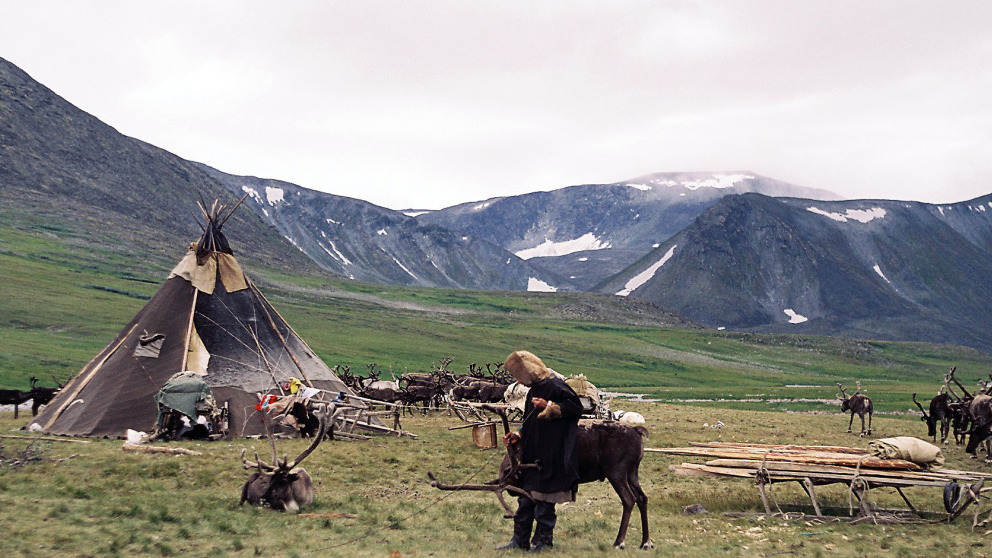Preparing for Uncertain Futures in the Russian Arctic
26.08.2021
The environment in the Arctic Circle and the Yamal region of Western Siberia is changing rapidly and the outlook for the region’s social, political, economic, and environmental future is clouded in uncertainty. A new IASS Discussion Paper presents the findings of the research project “Yamal 2040: Scenarios for the Russian Arctic”, in which researchers explored different future scenarios in cooperation with local stakeholders.

Arctic sea ice decline, permafrost thawing, coastal erosion, and air and water pollution are already threatening Yamal communities and infrastructures as well as the region’s flora and fauna. One example of the effects of climate change in the Yamal region is the occurrence of mass deaths of reindeer in recent decades, which have been linked to sudden changes in temperatures. The resulting rain-on-snow events cause thick ice cover to form and prevent reindeer from foraging. Incidents such as these threaten the livelihoods of indigenous peoples in the region.
Cooperation with indigenous peoples, civil society, industry, and media
A team led by IASS researcher Vilena Valeeva developed forward-looking scenarios in cooperation with local communities and stakeholders to better understand the risks and opportunities associated with future transformations in the Arctic region. The results of this work are presented in the IASS Discussion Paper “Preparing for Uncertain Futures: Co-created scenarios for the Russian Arctic” and are also of interest to stakeholders in other parts of the Arctic region or Russia that depend on fossil fuel extraction or face complex and uncertain situations. The researchers employed a methodology known as “strategic foresight”.
In a series of workshops, they developed three future scenarios that take into account climate projections as well as possible environmental, social and cultural concerns, economic opportunities, and political and legal developments. Various stakeholder groups, including indigenous peoples’ organisations and environmental NGOs, local communities, industry in the Yamal region and local media were involved in the project from the outset.
Facing an uncertain future with new knowledge and strategies
The scenarios envision and explore different futures for the region. In one of them, Yamal’s petroleum industry is in decline as a result of the global energy transition. In another, the region's gas industry is booming as a result of the global uptake of gas as a bridging technology. In two scenarios, Yamal experiences severe consequences of climate change, such as rain-on-snow events, anthrax outbreaks, and releases of mercury from thawing permafrost. These impacts pose life-threatening challenges to indigenous communities. The third scenario assumes cooling rather than rising temperatures in Yamal and Europe, resulting from the interaction of multiple unexpected climate factors.
The project provided an opportunity for participants to deepen their knowledge of the impacts of climate change and their interactions with other factors that affect Yamal's future, and to reflect on their own ways of thinking about the future. In addition, strategies were developed together with stakeholders to facilitate action to address possible future developments.
Publication:
- Valeeva, V., Gabriel, J., Stephen, K., Nikitina, E., Aksenov, Y., Baronina, Y., Bartels, M. P., Berchelmann, H. H., Davydova, A., Dethloff, K., Grigoriev, M., Handorf, D., Knizhnikov, A., Kotova, L., Kuznetsov, A., Kulikova, O., Semenov, V., Sulyandziga, R., & Weger, L. (2021). Preparing for Uncertain Futures: Co-created scenarios for the Russian Arctic. IASS Discussion Paper, August 2021.
Contact
